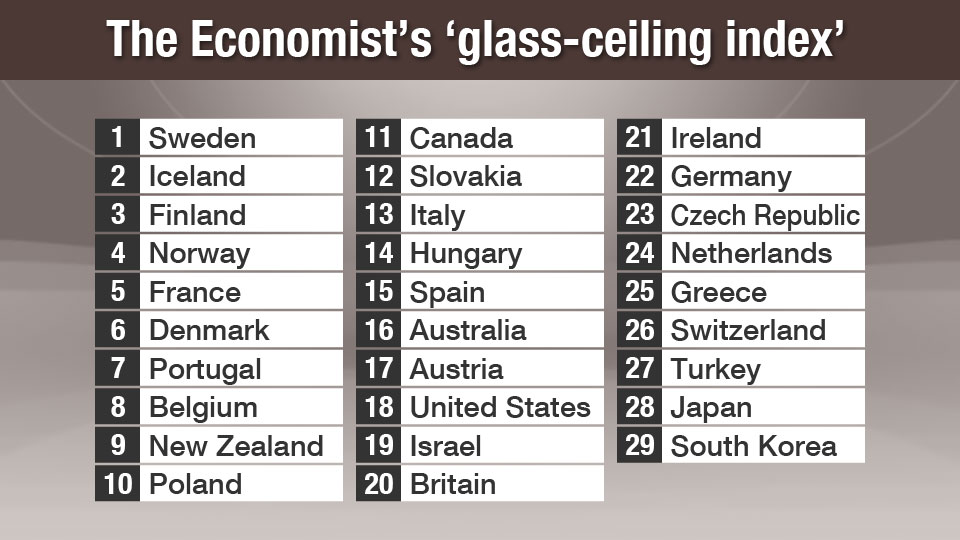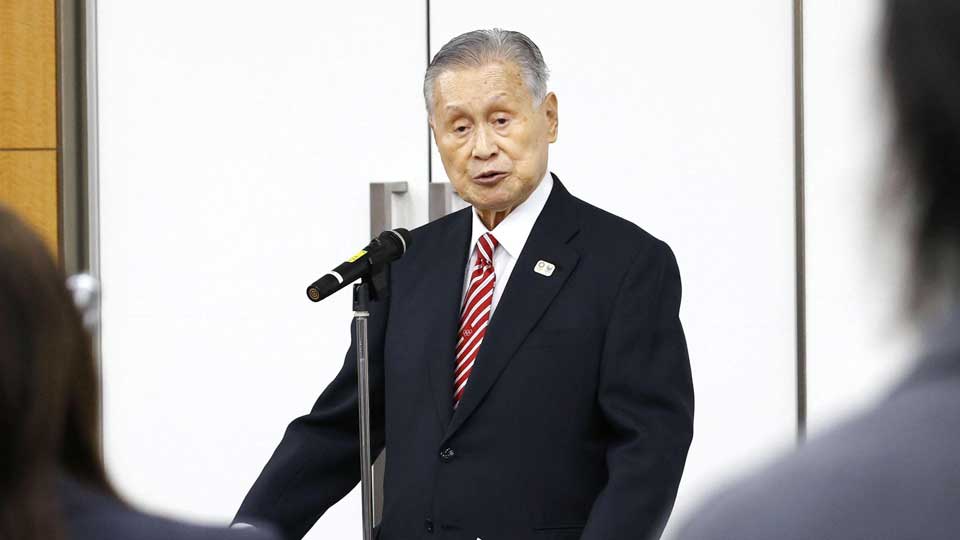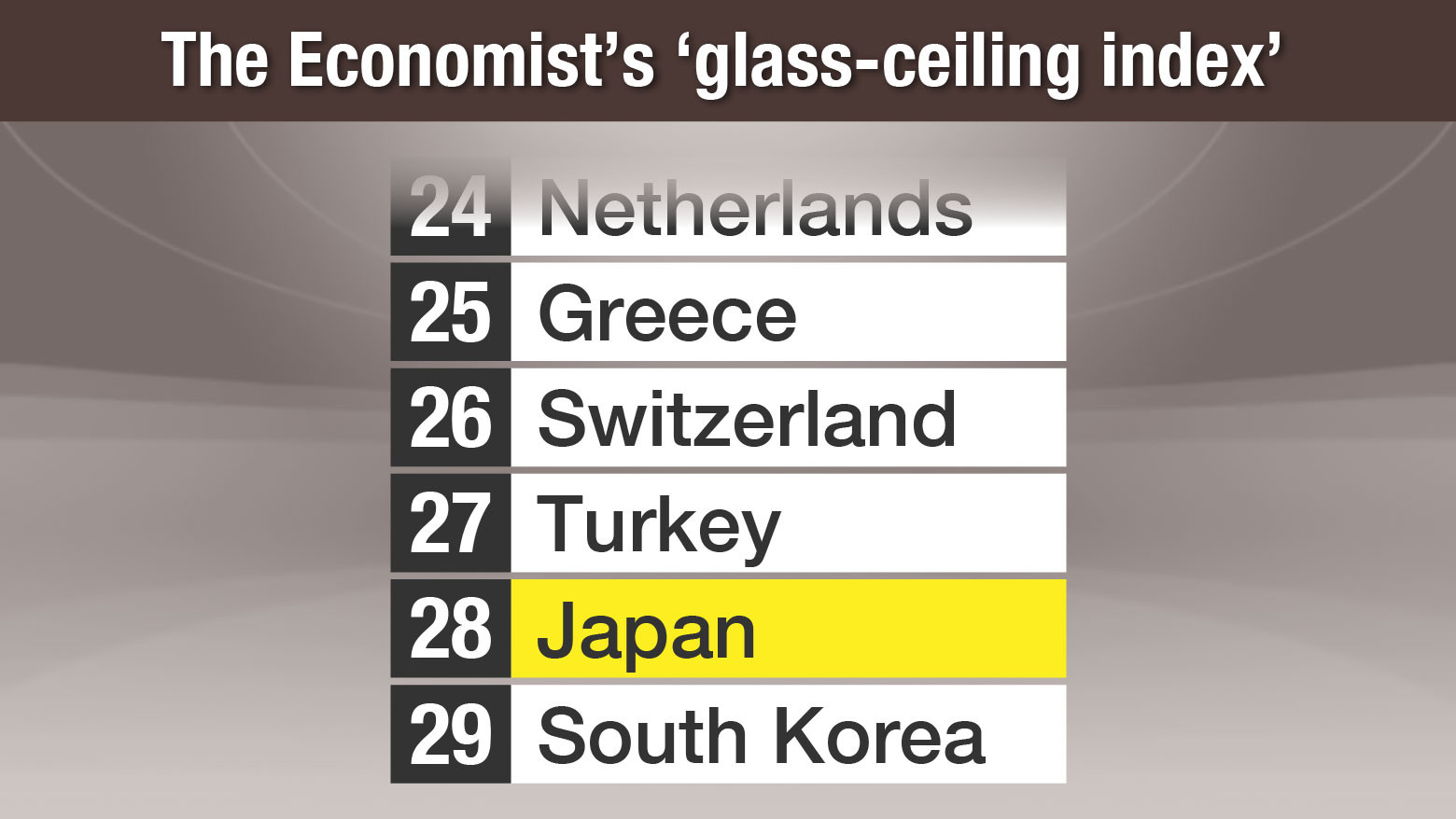The Economist magazine released its latest glass-ceiling index ahead of International Women's Day on March 8. Sweden placed top, followed by Iceland and Finland. Languishing at the bottom were Japan and South Korea.
"The ranking of Japan is not surprising," says Saito Fumie, a gender policy expert who has worked with various governments and international organizations. "I believe the underlying cause of the problem is persisting imbalances of power, which disadvantage women and girls and create discrimination at all ages in society."

Saito says the Japanese government's decision last year to shelve its target of having women in 30% of decision-making positions is a glaring example of the issue.
"This had been a target since way back in 2003, almost 20 years ago, but the government still couldn't achieve it," she says. "I think one of the reasons is lack of real commitment from leaders."
A recent survey by the Inter-Parliamentary Union sheds further light on the extent to which Japan trails the pack on gender quality. For the first time, more than a quarter of government seats around the world are held by women. In Japan's lower house, this figure stands at just 9.9%. This puts it 166th of the 193 parliaments surveyed, one place lower than last year.
And recently, Japanese politicians have been making headlines for all the wrong reasons with regard to gender equality. Three weeks ago, the head of the organizing committee of the Tokyo Olympic and Paralympic Games, Mori Yoshiro, was forced to resign over remarks that many called sexist. And last September, a female lawmaker with the ruling Liberal Democratic Party drew international ire after claiming that women "can lie as much as they want" about sexual assault. She resisted calls to resign and continues to serve in the Diet.
"This has been the problem for years and years, and a politician keeps producing discriminatory remarks that simply [show] their lack of common understanding of gender equality," Saito says. "Actually, they don't believe in equality, and they don't want to be the one to actually advance women's rights in society. That's what's missing from Japanese society and especially Japanese policy."

Saito says throughout her experience working with governments, she has noticed a fundamental difference in how European countries and Japan approach the issue. In Europe, the goal is achieving wholesale changes toward a more equal society. Meanwhile in Japan, the focus is on simply empowering women, without any consideration of society at large or the role men play in perpetuating existing gender dynamics.
But while this contrast has brought markedly different results (European countries tend to occupy the top spots in gender equality rankings; Japan is always near bottom), Saito is quick to point out that even Europe has a lot of work to do. She points to a study released last October by the European Institute for Gender Equality (EIGE) that says Europe is at least six decades away from achieving true gender equality.
"If the EU takes 60 years, then how long will it take for Japan to achieve gender equality? We have to act really quickly for gender equality. Japan needs politicians who believe in gender equality from the bottom of their heart. We need strong leadership."
Watch Video 02:49
Despite the grim state of affairs, Saito says she has seen some recent glimmers of hope. Last year, a youth group submitted to the government more than 1,000 suggestions on how to update a gender equality plan. Some of those ideas, including easier access to emergency contraceptive pills and steps to prevent sexual harassment during job interviews, were implemented.
While some key ideas, such as giving married couples the choice to use separate surnames, didn't make the cut, the extent of support for the effort showed Saito that it is possible to reshape Japanese society. And she says she's now confident the country's younger generation will smash that glass ceiling.

